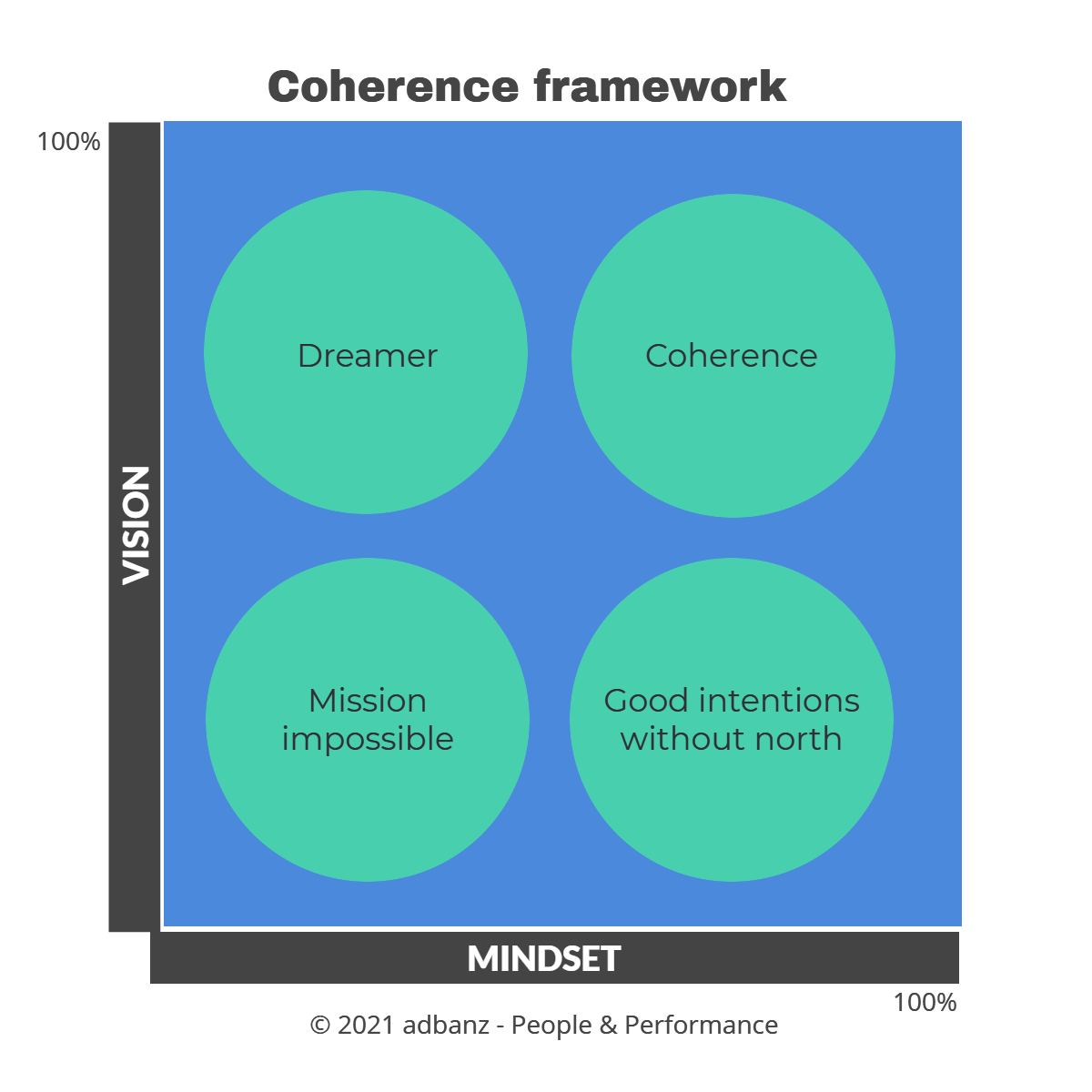If awareness is the beginning of every good intention in our lives and at work, coherence is the foundation to achieving a better life and even the most complex organizational goals. It is closing the gap between common sense and common practice though real down-to-earth daily alignment and the right mindset.
Without exception, the dominance and coherence of culture proved to be an essential quality of the excellent companies.
Tom Peters
Yes, alignment and coherence lead to excellence at a personal and at an organizational level.
If we could have an alarm in our head ringing every time we are incoherent with our visions, plans and ideas, we would certainly hear that alarm very often. At an organizational level, we are amazing at creating strategies but miserable at executing them. It’s as simple as doing some research in google or even in academic journals. We have too many strategy development frameworks and concepts, but not many solid answers about why do we fail miserably at executing them.
Actually, and without even having to look at the numbers, we are able to see and feel incoherencies every day at the office and in our daily lives. Why does my boss keep talking about psychological safety when we are not even given some time and space to express ourselves? Why do we keep watching Netflix for 3 hours at night, knowing that we will be too tired to do some exercise in the morning? Incoherencies can be as obvious as not having the resources to finish an important project and as subtle as a face expression during a meeting. And the effects of these incoherencies can also come in all colors and flavors. But it’s a fact: Every incoherence at work will end up sooner or later as a decrease in employee engagement and as a poor Employee Experience from a workforce that hears something, but sees and feels something else.
And what about your daily life? Are you really aware about your incoherencies and what do you do about them?
We have come up with a very simple framework for our customers and friends that has been very helpful at a personal and at an organizational level. We call it the Coherence Framework.

We can be great at creating and developing strategies, plans or ideas, but we will only be coherent if we have the right mindset to achieve it. We define mindset as having the right daily intentions, attention, beliefs, routines, habits and behaviors that will allow us to achieve that vision.
If we keep finding ourselves with ideas but not the right mindset, we are just dreaming.
If we have kind of the right mindset but no real vision, we have good intentions but no real north.
And of course, if we have none of them, it’s mission impossible.
We need to be coherent in our lives to achieve our dreams and visions. And we need to achieve organizational coherence to be able to execute. It’s that sweet spot where we walk the talk. We actually recommend every leader (and we can be leading our own lives and/or huge organizations) to hunt for incoherencies in a daily basis. Simply put, it’s putting attention in our own intentions and translating them to down-to-earth actions.


